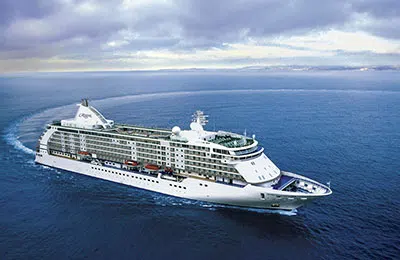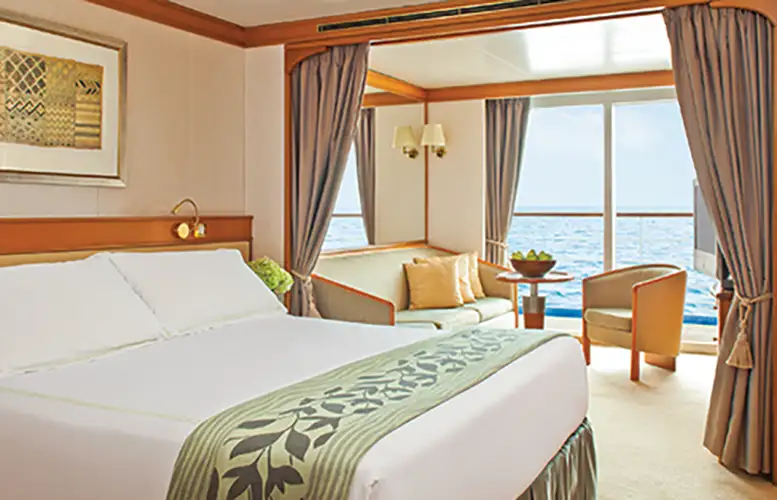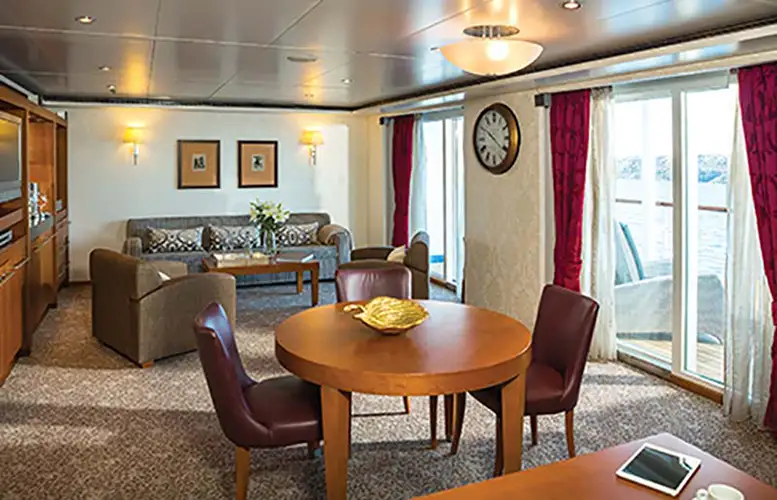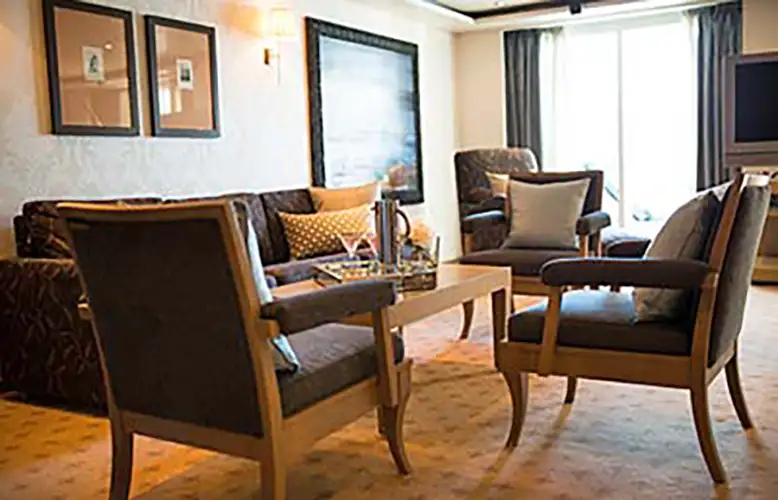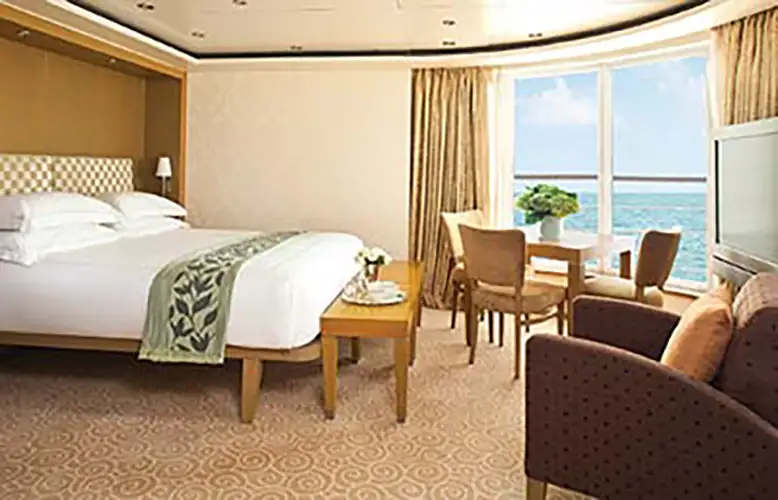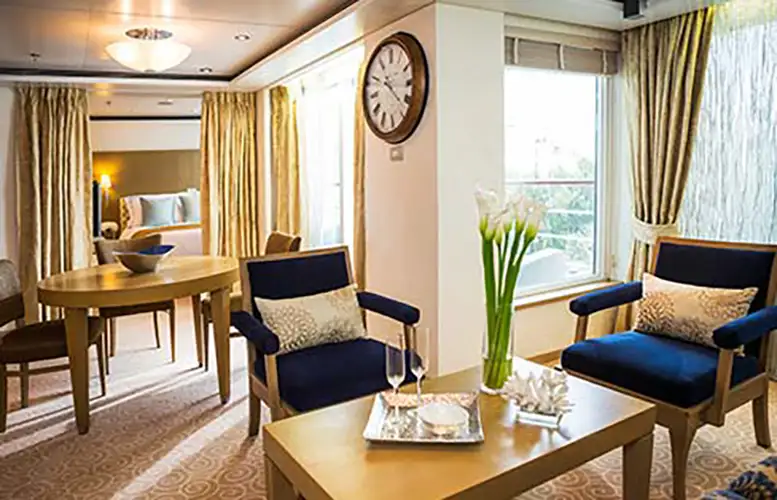Regent Northern Europe: 14 nights from Lisbon with Seven Seas Voyager
Jul 20, 2026
Portugal, France, Belgium, Netherlands, United Kingdom
Cruise itinerary
Departure Port: Lisbon ➞
Landing: Southampton
-
Monday, July 20, 2026 - 7:00 PMLisbon
-
Tuesday, July 21, 2026Navigation
-
Wednesday, July 22, 2026Navigation
-
Thursday, July 23, 2026 3:00 AM - not foundBordeaux
-
Friday, July 24, 2026 not found - 4:00 PMBordeaux
-
Saturday, July 25, 2026Navigation
-
Sunday, July 26, 2026 9:00 AM - not foundLe Havre
-
Monday, July 27, 2026 not found - 7:00 PMLe Havre
-
Tuesday, July 28, 2026Navigation
-
Wednesday, July 29, 2026 7:00 AM - not foundZeebrugge
-
Thursday, July 30, 2026 not found - 7:00 PMZeebrugge
-
Friday, July 31, 2026 7:00 AM - not foundAmsterdam
-
Saturday, August 1, 2026 not found - 7:00 PMAmsterdam
-
Sunday, August 2, 2026Navigation
-
Monday, August 3, 2026 7:00 AM 5:00 PMSouthampton
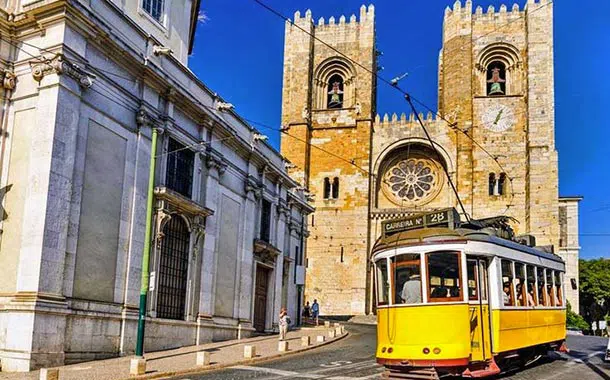
Lisbon
Perched on steep slopes overlooking the Tagus River, Lisbon offers all the pleasures you'd expect from Portugal's main attraction.
The capital of Portugal, Lisbon (in Portuguese Lisboa) has experienced a great rebirth in recent years, with a lively and flourishing contemporary culture. Perched on the coast of the Atlantic Ocean, Lisbon is one of the rare European cities that face the ocean and use water as an element that defines the city. Lisbon enchants travelers with its white limestone buildings, intimate alleys and an ancient charm that makes it a popular destination all year round.
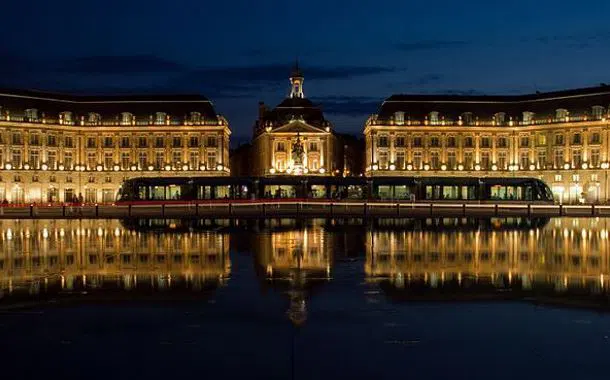
Bordeaux
Bordeaux is city on the Atlantic Ocean and its port hosts big ships. The city had initially the name Burdigala and was established in III Century B.C. by the Gallic people.
It was a neuralgic centre for the International commerce of tin and lead. After the arrival of the Romans, Bordeaux becomes one of the richest cities of Gallia and is robbed many times by populations such as Visigoths and Vandals. With the passing of time, the City starts economic relationships with England trading in salt and wine and, in XVI Century, also the colonial sugar and slaves start having a leading role in the sustenance of the city.
Bordeaux has a liveable city centre that can be visited by foot and that offers beautiful attractions and energy. At night, the city get crowded with young people filling up the main squares and the bars where you can taste excellent wines and plunge in the romantic atmosphere that the city assumes after the sunset. You can’t miss out Château de la Brède, a gothic style castle dated back to XIV Century, surrounded by a moat and an English garden. The philosopher Montesquieu lived here and tourists can visit his library and his bedroom that are just like they were in XIX Century.
We suggest to visit also the beautiful Saint Eloi Church. Established in XII Century, the construction and renovation works lasted until 1400’s. The current structure is dated back to this period. The church is one of the stop-overs of Santiago de Compostela walking tour and is part of UNESCO World Heritage. Bordeaux offers a wide variety of gastronomic and wine choices. There are many restaurants and bars where you can taste the best wines on the market and an amazing cuisine.

Bordeaux
Bordeaux is city on the Atlantic Ocean and its port hosts big ships. The city had initially the name Burdigala and was established in III Century B.C. by the Gallic people.
It was a neuralgic centre for the International commerce of tin and lead. After the arrival of the Romans, Bordeaux becomes one of the richest cities of Gallia and is robbed many times by populations such as Visigoths and Vandals. With the passing of time, the City starts economic relationships with England trading in salt and wine and, in XVI Century, also the colonial sugar and slaves start having a leading role in the sustenance of the city.
Bordeaux has a liveable city centre that can be visited by foot and that offers beautiful attractions and energy. At night, the city get crowded with young people filling up the main squares and the bars where you can taste excellent wines and plunge in the romantic atmosphere that the city assumes after the sunset. You can’t miss out Château de la Brède, a gothic style castle dated back to XIV Century, surrounded by a moat and an English garden. The philosopher Montesquieu lived here and tourists can visit his library and his bedroom that are just like they were in XIX Century.
We suggest to visit also the beautiful Saint Eloi Church. Established in XII Century, the construction and renovation works lasted until 1400’s. The current structure is dated back to this period. The church is one of the stop-overs of Santiago de Compostela walking tour and is part of UNESCO World Heritage. Bordeaux offers a wide variety of gastronomic and wine choices. There are many restaurants and bars where you can taste the best wines on the market and an amazing cuisine.
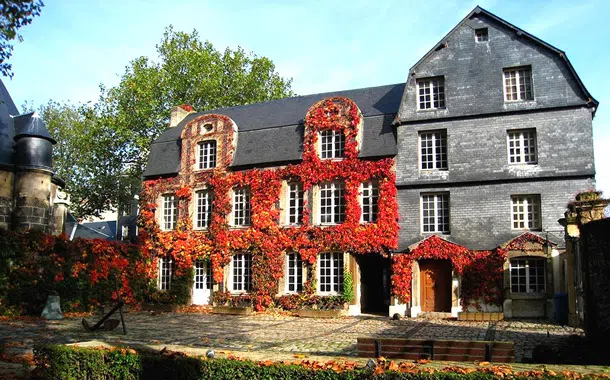
Le Havre
Le Havre is worth a visit, not only as a stopover on the way to Paris or other inland destinations, but also as one of the great examples of post-war planning. It is a strange and strangely fascinating city, listed by
Unesco as a World Heritage Site.
Wandering through the streets of the seaside town of Le Havre, one might think one had stumbled upon a forgotten outpost of the Eastern Bloc. Obliterated by World War II bombings, the city was completely rebuilt by the Belgian architect Auguste Perret and, what emerged from the ashes of old Le Havre, is a kind of love letter to concrete: endless rows of blocks of buildings, straight avenues stretching out from the central square, dominated by the 100 m high 'Stalinist Baroque' style cathedral, looks like something straight out of the pages of '1984'.
Walking through the streets of the seaside city of Le Havre, you might think you've stumbled into a forgotten outpost of the Eastern Bloc. Erased by the bombings of the Second World War, the city was completely rebuilt by the Belgian architect Auguste Perret and, what emerged from the ashes of old Le Havre, is a kind of love letter to concrete: endless rows of blocks of buildings, straight avenues that extend out of the central square, dominated by the 100 m high cathedral in 'Stalinist Baroque' style, looks like something directly from the pages of '1984'.

Le Havre
Le Havre is worth a visit, not only as a stopover on the way to Paris or other inland destinations, but also as one of the great examples of post-war planning. It is a strange and strangely fascinating city, listed by
Unesco as a World Heritage Site.
Wandering through the streets of the seaside town of Le Havre, one might think one had stumbled upon a forgotten outpost of the Eastern Bloc. Obliterated by World War II bombings, the city was completely rebuilt by the Belgian architect Auguste Perret and, what emerged from the ashes of old Le Havre, is a kind of love letter to concrete: endless rows of blocks of buildings, straight avenues stretching out from the central square, dominated by the 100 m high 'Stalinist Baroque' style cathedral, looks like something straight out of the pages of '1984'.
Walking through the streets of the seaside city of Le Havre, you might think you've stumbled into a forgotten outpost of the Eastern Bloc. Erased by the bombings of the Second World War, the city was completely rebuilt by the Belgian architect Auguste Perret and, what emerged from the ashes of old Le Havre, is a kind of love letter to concrete: endless rows of blocks of buildings, straight avenues that extend out of the central square, dominated by the 100 m high cathedral in 'Stalinist Baroque' style, looks like something directly from the pages of '1984'.

Zeebrugge
Connected to Bruges by 7.5-kilometer canal, Zeebrugge is a seaside resort that looks to the future.
On the sea front, hotels and cafes offer a warm welcome. Zeebrugge is the most important Belgian fishing port. The Zeebrugge wholesale fish market, located in a modern complex in the inner port, is one of the largest and sophisticated of its kind in Europe. Zeebrugge also has an attractive tourist port that can contain a maximun number of 100 ships. Furthermore, its geographical position is very convenient, near the beautiful city of Bruges, the trendy seaside resort of Knokke and the picturesque village of Lissewege.
On the seafront, hotels and cafes offer their warmest welcome. Zeebrugge is the most important Belgian fishing port. The Zeebrugge wholesale fish market, installed in a modern complex in the inner harbor, is one of the largest and most sophisticated of its kind in Europe. Zeebrugge also has an attractive marina that can accommodate around 100 ships. Furthermore, it enjoys a very convenient geographical position, a few km from the beautiful Bruges, the trendy seaside resort of Knokke and the picturesque village of Lissewege.

Zeebrugge
Connected to Bruges by 7.5-kilometer canal, Zeebrugge is a seaside resort that looks to the future.
On the sea front, hotels and cafes offer a warm welcome. Zeebrugge is the most important Belgian fishing port. The Zeebrugge wholesale fish market, located in a modern complex in the inner port, is one of the largest and sophisticated of its kind in Europe. Zeebrugge also has an attractive tourist port that can contain a maximun number of 100 ships. Furthermore, its geographical position is very convenient, near the beautiful city of Bruges, the trendy seaside resort of Knokke and the picturesque village of Lissewege.
On the seafront, hotels and cafes offer their warmest welcome. Zeebrugge is the most important Belgian fishing port. The Zeebrugge wholesale fish market, installed in a modern complex in the inner harbor, is one of the largest and most sophisticated of its kind in Europe. Zeebrugge also has an attractive marina that can accommodate around 100 ships. Furthermore, it enjoys a very convenient geographical position, a few km from the beautiful Bruges, the trendy seaside resort of Knokke and the picturesque village of Lissewege.
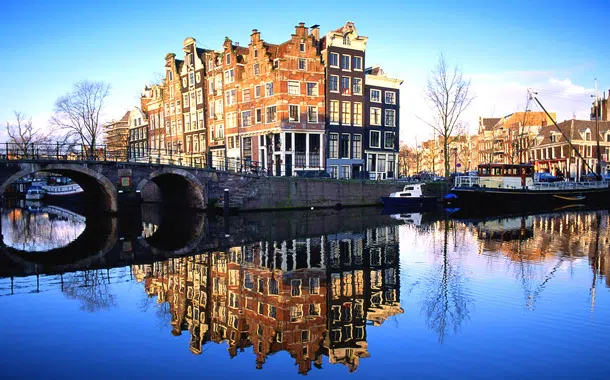
Amsterdam
Amsterdam is a charming city with a particularly relaxing and serene atmosphere, despite its large size. The city has been a World Heritage Site since 2010 and has buildings dating back to the sixteenth and seventeenth centuries. It is no coincidence that it is one of the most visited cities in the world.
The structure of the city is determined by a network of charming waterways. The historic center, which dates back to the 13th century, is surrounded by five concentric canals - the Grachtengordel - built in the 17th century as part of a perfectly successful expansion project designed to create a unique and refined urban environment.
It is here that the city's mercantile class built its characteristic gabled houses, with bright, gracefully decorated colors, whose romantic features are reflected in the olive-green waters of the picturesque canals.

Amsterdam
Amsterdam is a charming city with a particularly relaxing and serene atmosphere, despite its large size. The city has been a World Heritage Site since 2010 and has buildings dating back to the sixteenth and seventeenth centuries. It is no coincidence that it is one of the most visited cities in the world.
The structure of the city is determined by a network of charming waterways. The historic center, which dates back to the 13th century, is surrounded by five concentric canals - the Grachtengordel - built in the 17th century as part of a perfectly successful expansion project designed to create a unique and refined urban environment.
It is here that the city's mercantile class built its characteristic gabled houses, with bright, gracefully decorated colors, whose romantic features are reflected in the olive-green waters of the picturesque canals.
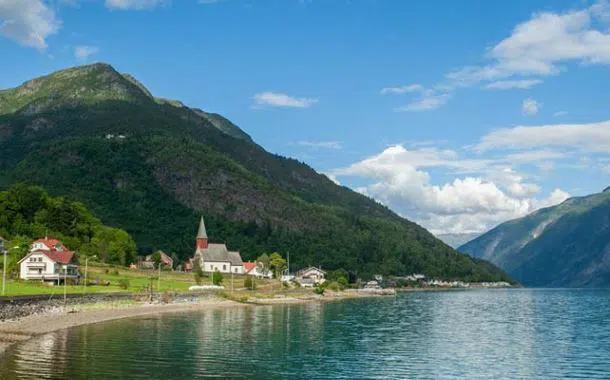
Southampton
Southampton is a city positioned in the South of Great Britain and its port is one of the main ports in Europe. From the port of Southamptos it is possible to set sail for a Cunard transatlantic cruise and reach New York, or visit Amsterdam and Belgium with an MSC cruise. The city offers, further to the New Forest National Park, a wide natural park with its suggestive woods, also many museums and art galleries and remarkable architectural works. Noteworthy is King John’s Palace, of Norman origins as well as the old walls with 7 entrances to the city. An evidence of the Victorian Age is Tudor House, collecting objects dated back to that period. For the art lovers, Southampton City Art Gallery offers exhibitions of any kind of art, from drawing to photography with shows that attract many visitors.
Southampton: The UK's Grand Gateway to Global CruisesSet sail from Southampton, the historic and vibrant port city on England's south coast, renowned as the UK's premier cruise departure point. With its rich maritime heritage, including its association with the Titanic, and excellent transport links, Southampton offers a grand beginning to voyages across the Atlantic, to the Mediterranean, Northern Europe, and beyond. Before embarking, explore its ancient city walls, maritime museums, and lively shopping districts. Southampton provides a seamless and exciting start to your global cruise adventure.
World-Class Journeys Begin from SouthamptonCruises departing from Southampton open up a world of possibilities, from transatlantic crossings to the Americas, sun-drenched Mediterranean escapes, and captivating Northern European explorations. Whether you dream of iconic cityscapes, breathtaking natural wonders, or culturally immersive experiences, Southampton serves as an ideal launchpad. Enjoy the convenience of a world-class port and the anticipation of new discoveries as you leave the shores of England for unforgettable experiences on the open water, promising relaxation, entertainment, and endless exploration. Each voyage from Southampton promises a journey of a lifetime.
